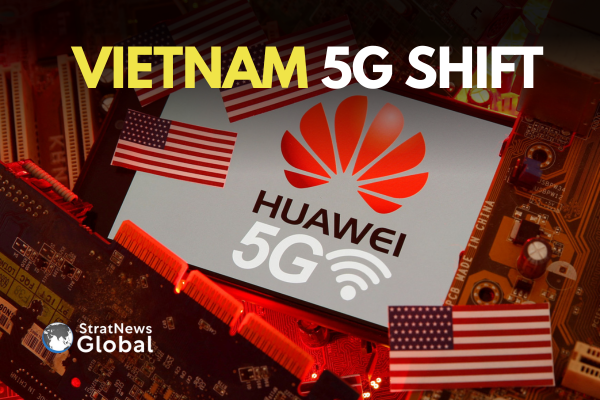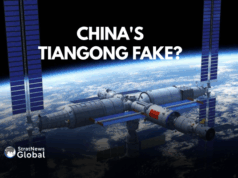China’s leading telecom firms Huawei and ZTE have secured multiple 5G equipment contracts in Vietnam this year, signalling a shift in Hanoi’s approach towards Beijing as relations with Washington cool. The deals, worth over $40 million combined, mark a major development in Vietnam’s technology partnerships and have raised concerns among Western officials, according to people familiar with the matter.
Vietnam’s Growing Engagement with Chinese Tech
For years, Vietnam avoided using Chinese technology in sensitive infrastructure, wary of security risks and political influence. However, recent warming relations with Beijing and trade tensions with the US appear to have shifted that stance.
While Sweden’s Ericsson and Finland’s Nokia continue to supply Vietnam’s 5G core infrastructure, and US chipmaker Qualcomm provides network components, Chinese companies have begun winning smaller tenders through state-owned operators. Public procurement data shows Huawei and ZTE gaining ground in the market.
A Huawei-led consortium won a $23 million 5G equipment contract in April, just weeks after Washington announced new tariffs on Vietnamese goods. ZTE secured at least two contracts worth over $20 million, with the first publicly revealed deal signed in September, one month after US tariffs took effect.
Strategic and Economic Implications
The timing of these contracts has raised speculation about whether Vietnam’s pivot is linked to US trade measures. Washington has long discouraged its allies from allowing Chinese firms into critical infrastructure, warning of potential data and security risks. Huawei and ZTE are banned from US networks and restricted in several European countries, including Sweden.
Despite these warnings, Vietnamese analysts say the country’s decisions are guided by practical needs. Nguyen Hung, a supply chain specialist at RMIT University Vietnam, noted that “Vietnam has its own priorities,” highlighting that closer economic ties with China could strengthen regional integration.
The new contracts come alongside progress on other sensitive China-linked projects, such as cross-border railway lines and special economic zones near the border initiatives once deemed too risky for national security.
Western Concerns Over Network Security
Western diplomats in Hanoi have reportedly discussed the issue in multiple meetings this month. A US official warned that the use of Chinese technology could erode trust in Vietnam’s networks and complicate cooperation on advanced technologies.
Some officials have explored technical safeguards, such as isolating areas using Chinese equipment to prevent potential data leaks. Yet telecom experts warn that even limited involvement could give suppliers indirect access to network data. “Western contractors may face the awkward prospect of working alongside firms they do not trust,” said telecommunications lawyer Innocenzo Genna.
Cost and Competition Drive Vietnam’s Choices
Sources at Viettel, Vietnam’s army-owned telecom giant, said cost competitiveness played a role in the decision, noting that Chinese technology remains significantly cheaper. Huawei, despite losing several major bids earlier this year, signed a 5G technology transfer agreement with Viettel in June.
While Vietnam continues to balance relationships with both Beijing and Washington, the growing role of Chinese telecom firms reflects a strategic recalibration amid global competition and shifting trade alliances.
(with inputs from Reuters)





